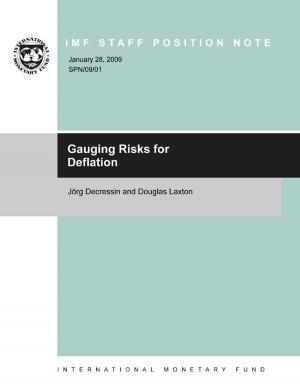The Economic Impact of Conflicts and the Refugee Crisis in the Middle East and North Africa
Business & Finance, Economics, Money & Monetary Policy, Macroeconomics| Author: | Bjoern Rother, Gaelle Pierre, Davide Lombardo, Risto Herrala, Priscilla Toffano, Erik Roos, Allan G Auclair, Karina Manasseh | ISBN: | 9781475533422 |
| Publisher: | INTERNATIONAL MONETARY FUND | Publication: | September 16, 2016 |
| Imprint: | Language: | English |
| Author: | Bjoern Rother, Gaelle Pierre, Davide Lombardo, Risto Herrala, Priscilla Toffano, Erik Roos, Allan G Auclair, Karina Manasseh |
| ISBN: | 9781475533422 |
| Publisher: | INTERNATIONAL MONETARY FUND |
| Publication: | September 16, 2016 |
| Imprint: | |
| Language: | English |
In recent decades, the Middle East and North Africa region (MENA) has experienced more frequent and severe conflicts than in any other region of the world, exacting a devastating human toll. The region now faces unprecedented challenges, including the emergence of violent non-state actors, significant destruction, and a refugee crisis bigger than any since World War II. This paper raises awareness of the economic costs of conflicts on the countries directly involved and on their neighbors. It argues that appropriate macroeconomic policies can help mitigate the impact of conflicts in the short term, and that fostering higher and more inclusive growth can help address some of the root causes of conflicts over the long term. The paper also highlights the crucial role of external partners, including the IMF, in helping MENA countries tackle these challenges.
In recent decades, the Middle East and North Africa region (MENA) has experienced more frequent and severe conflicts than in any other region of the world, exacting a devastating human toll. The region now faces unprecedented challenges, including the emergence of violent non-state actors, significant destruction, and a refugee crisis bigger than any since World War II. This paper raises awareness of the economic costs of conflicts on the countries directly involved and on their neighbors. It argues that appropriate macroeconomic policies can help mitigate the impact of conflicts in the short term, and that fostering higher and more inclusive growth can help address some of the root causes of conflicts over the long term. The paper also highlights the crucial role of external partners, including the IMF, in helping MENA countries tackle these challenges.















